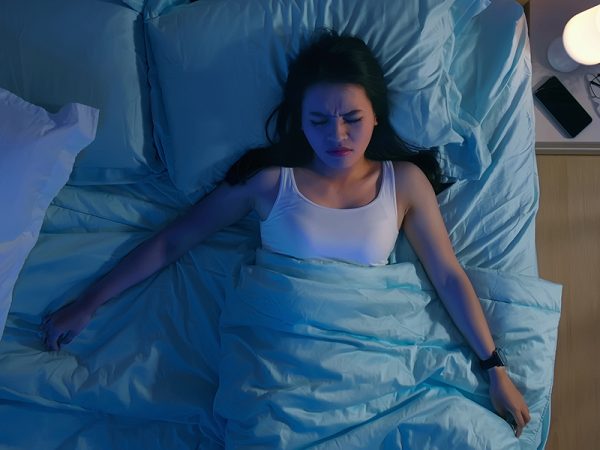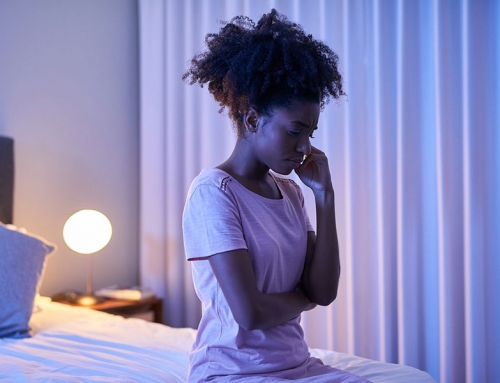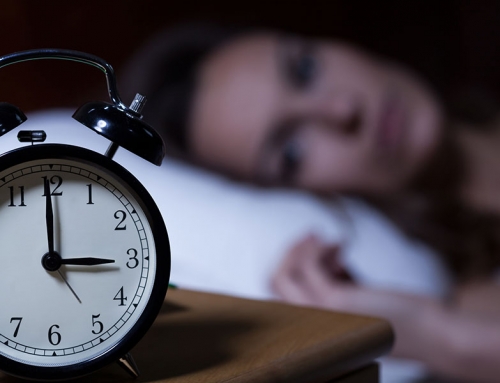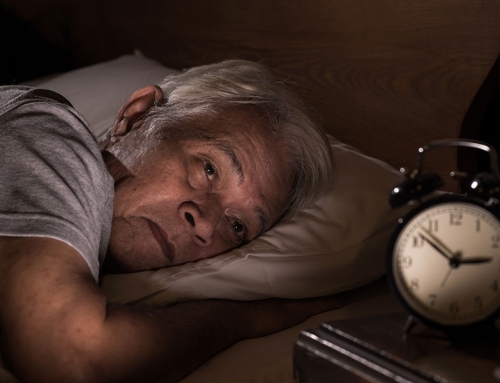 There’s nothing more frustrating than tossing and turning all night. Sure, sometimes on the off chance you may have a bad sleep. But every night?? What’s even more frustrating is feeling like you have tried one or more methods to fall asleep and they just don’t seem to be working effectively. The truth is, there are several potential reasons behind your restless sleep. And there’s also many ways to address this.
There’s nothing more frustrating than tossing and turning all night. Sure, sometimes on the off chance you may have a bad sleep. But every night?? What’s even more frustrating is feeling like you have tried one or more methods to fall asleep and they just don’t seem to be working effectively. The truth is, there are several potential reasons behind your restless sleep. And there’s also many ways to address this.
We know you want to get to the bottom of this; as constant sleep deprivation doesn’t just affect your day-to-day focus and alertness, but your long-term health as well. If you’re not getting enough quality sleep, you’re more prone to getting diabetes, heart disease and the flu. Check out this article to determine whether you are in sleep debt.
Continue reading to learn more about why you may be having interrupted sleep and what you can do about it.
What are the causes of nighttime restlessness?
Stress
Stress can be short-term or prolonged, but one thing’s for sure: it can make it harder to fall and stay asleep. According to this study, stress was strongly linked to poor sleep quality. On the flip side, sleep deprivation can also induce more stress because sleep is the time that your body and brain are relaxing and recharging. Without this process, we are more likely to feel on edge, disoriented and unfocused. Stress, worry and anxiety can all make your mind race so much that when you’re finally tucked under the covers, it’s not that easy to necessarily “turn it off”.
Overstimulation
This can be in the form of being on our screens too much before bed, drinking alcohol before bed or even exercising late at night. Poor sleep hygiene habits and external sensory stimulants contribute to sleep restlessness in a variety of ways.
If you’re on your phone or watching Netflix late into the night right before you go to sleep, the blue light coming off of these screens could delay your body’s natural sleep inducing hormone, melatonin. Along the same lines, if you have too much noise or light coming into your sleep environment, your senses will be energizing when they need to be relaxing. Then if you’re eating too late or consuming caffeine, alcohol or other stimulants, then your sleep cycle will be thrown off.
Poor sleep schedule
This reason is usually staring us right in the face if it’s true. We know all too well if our sleep schedule feels off. Going to bed too late, too early or at very different times every day can make falling asleep challenging. Prolonged or infrequent napping can also interfere with sleep quality overall. Check out our guide on how to nap effectively and efficiently.
Hormones
This reason typically affects women more because changes undergone through pregnancy and menopause play a large role in sleep quality. The side effects of both of these includes hot flashes, night sweats, frequent urination and sometimes pain connected to the influx of hormones. This is also the case for some women during their menstrual cycles. Of course, not every experience will be the same and it’s important to talk with a medical professional if you have any concerns.
Underlying sleep disorders
You might be tossing and turning at night due to a deeper, underlying medical condition. The following are some of the most common sleep conditions. Though before self-diagnosing anything, always consult with your doctor if any of them are affecting you
Restless leg syndrome
Restless leg syndrome (RLS) is a nervous system disorder that causes painful sensations (aching, tingling, burning) in the legs. Ironically, these unpleasant leg and foot sensations are more prominent at night when an individual is resting still and trying to fall asleep. They feel the urge to move their legs for relief, and this constant movement will understandably cause a lot of tossing and turning.
Sleep apnea
Obstructive sleep apnea could be a potential culprit of your tossing and turning. Essentially, sleep apnea is when your airway is blocked; your body and brain become oxygen deprived. Therefore, you’re unable to breathe effectively and you’ll likely start snoring, waking up gasping for air or waking up during the night with a dry mouth as a result.
Insomnia
Insomnia is a common sleep disorder that is characterized by the inability to fall or stay asleep. You can’t sleep even when you’re tired, you’re getting restless sleep throughout the night and you can’t get enough sleep to feel refreshed. Sleep just doesn’t feel restorative and you’re always feeling exhausted and irritable.
It’s important to note that while insomnia could be the root cause of restless sleep, the two are necessarily mutually exclusive, meaning if you’re occasionally tossing and turning—you don’t automatically have insomnia. It’s a diagnosed condition and can be acute as it relates to short-term stress-inducing life events like losing a loved one or financial issues, but it could also be more chronic and long-term.
Your mattress
The surface we sleep on has a large impact on our sleep. If you’re tossing and turning because you just can’t find that perfect spot, then it may be that your mattress isn’t cutting it for you anymore. And if you haven’t replaced your mattress in 8 – 10 years, then it might be time, especially if you notice sagging or any general wear.
It could be that the type of mattress you have isn’t fitting your body’s needs anymore. Hybrids, memory foam, latex and innerspring mattresses all have different elements that work for varying sleeping positions and conditions. Take it from us – tossing and turning is already annoying, but tossing and turning on an uncomfortable mattress? That’s just unbearable. Move on with our complete guide to choosing the best mattress.
How to stop tossing and turning at night
Now that we’ve gone through some potential reasons behind your interrupted sleep, let’s get into some of the ways that you can finally put an end to all of this tossing and turning.
No more tossing and turning
Put an end to all your tossing, turning and low quality sleep today. Sleep is an essential thing that our body needs to stay healthy, energized and recharged. Without it, we risk feeling disoriented and exhausted. By addressing your sleep concerns today, you will not only put the brake on a number of diseases—you can fully survive and thrive in your work, relationships and life!





